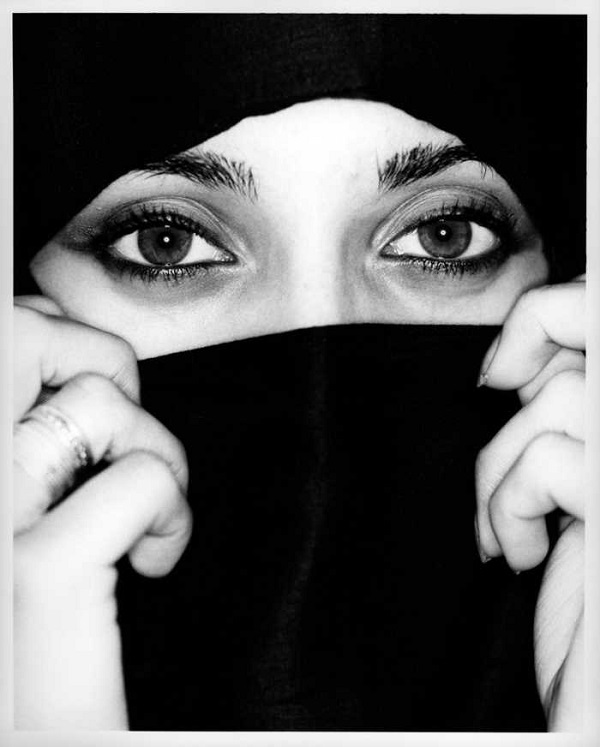FWP:
As Arshi notes, an ideal counterpart verse for comparison is {100,6}. In the present verse we find the same basic notion (though less amusingly because we miss the hauteur in the beloved's voice): that it would be a comedown for the beloved to become a 'mere' Houri, or celestial damsel of Paradise. Her present status, obviously, is much more lofty.
Thus the lover invokes the power of the protean term ;haq (see the definition above) against these arrogant beloveds. This excellently chosen word gives at least three possible grounds for his claim:
=As 'justice' in the sense of requital for injury: since the beloveds have so tormented and wronged the lover in this world, they will owe him a recompense in the next.
=As the lover's 'right, fate, share': his bond with the beloveds is so strong, so indissoluble, and so legitimated by his sufferings for their sake, that he is entitled to be united with them in Paradise
=Through a direct appeal to 'God', who oversees all destinies and all requitals: since God controls Paradise, who but God could arrange for the beloveds this entirely appropriate fate?
The suggestion that it can be a punishment, an occasion for revenge, for the beloved to become a mere Houri, is one of a whole set of what might be called 'snide remarks about Paradise'; see {35,9} for others. There's also the enjoyable juxtaposition of the Persian notion of a parii with the Arabic/Qur'anic notion of a ;huur .
Usually Paris are female, and Parizads are male, in the story tradition. Here we have the choice of taking the 'Pari-born' ones to be human female beloveds, or else to be beautiful youths (whose gender must then be changed, because both Houris and ho ga))ii;N are feminine). For more on the beloved as sometimes a beautiful youth, see {9,2}.
The verse is clearly one in which the beloved is not God; for others, see {20,3}.
On the use of the perfect verb form ( ho ga))ii;N ) as a subjunctive ( ho jaa))e;N ), see {35,9}.

Nazm:
In this verse the verb ho ga))ii;N applies to the Pari-born ones. From this it's clear that by Pari-born ones women are meant. (118)
== Nazm page 117; Nazm page 118